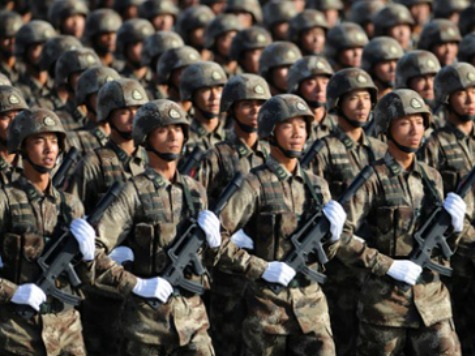
This morning’s key headlines from GenerationalDynamics.com
- Britain’s David Cameron announces new anti-terrorism measures
- Russian lawyers: ‘Stealth invasion’ of Ukraine is legal
- India, Japan leaders meet to counter rise of China
Britain’s David Cameron announces new anti-terrorism measures
Having raised UK’s terror threat level last week to “severe,” meaningthat a terrorist attack is “highly likely,” but not necessarilyimminent, Britain’s prime minister David Cameron on Monday announced anew set of anti-terrorism measures.
The new measures are targeting a specific issue: Would-be jihadistsgoing to Syria to join the Islamic State / of Iraq and Syria (IS orISIS) for training and then coming back to the UK to use those skillsin terrorist attacks. According to published statistics,approximately 500 British citizens have traveled to fight in Syria,and 200 of them have already returned home.
The first measure pertains to suspected citizens traveling abroad. Itwill give police the power to temporarily confiscate a passport inorder to prevent the suspect from leaving the country.
The second measure applies when a suspected citizen returns. Policewill have the power to exclude British citizen suspects fromreentering the country. If the citizen is allowed into the country,the legislation will give police new powers to track suspectedjihadists and to take advantage of “enhanced relocation powers.”Suspected terrorists will be required to undergo “de-radicalizationprograms.”
Consideration was given to the power to revoke a suspect’s UKcitizenship, but unless the suspect had a dual citizenship, such apower would leave the subject stateless, in violation of internationallaw.
In addition, airlines will be forced to hand over more informationabout passengers travelling to and from conflict zones. BBC and CNN
Russian lawyers: ‘Stealth invasion’ of Ukraine is legal
Russia’s government is hearing complaints from the liberal media toexplain why a group of Russian paratroopers, captured by the Ukrainianarmy, were deployed to Ukraine by Russia’s president Vladimir Putinwithout authorization of the Federation Council, the upper chamber ofRussia’s parliament.
Soldiers’ mothers are complaining loudly that their sons are cominghome from Ukraine as “cargo 200” — as dead servicemen shipped homeare referred to in Russia, based on the standard weight of a coffin –without telling their families that they were deployed to Ukraine inthe first place.
However, apparently Putin can do pretty much anything he wants underRussian law, thanks to a “universal mandate” that the FederationCouncil issued to the president in 2009, allowing him to invade anyother country without further approval.
About 190,000 members of the 760,000-strong Russian army arerubles ($500) per month, a huge sum by Russian standards. They can beordered into combat in Ukraine or anywhere else at any time, and thereisn’t even a contractual requirement that relatives be notified ifvolunteers are killed in the line of duty.
The Russian government is disavowing soldiers who are being killed inUkraine, according to Russian activists. Numerous reporters, bothWestern and Russian, have investigated what appear to be freshly dug,unmarked graves of soldiers. All online accounts of the men who wereburied there have been removed from the Internet, as have photos ofthe soldiers that their families placed on their graves. When Russianjournalists traveled there, the BBC reported that men told them theywould “never be found” unless they left.
But for Putin, it’s all perfectly legal. Moscow Times and Washington Post and Telegraph (London)
India, Japan leaders meet to counter rise of China
India’s prime minister Narendra Modi met with Japan’s prime ministerShinzo Abe in Tokyo on Monday, supposedly to improve economic ties,but it was clear that the threats posed by China were high on theagenda. Their joint statement said, “The two prime ministersreaffirmed the importance of defense relations between Japan and Indiain their strategic partnership and decided to upgrade and strengthenthem.”
Abe and Modi agreed to hold regular joint naval exercises with theUnited States and to increase Japanese military exports to India.This agreement was particularly significant in view of Abe’s recentreinterpretation of Japan’s pacifist constitution, which permitsmilitary action only for Japan’s self-defense. Abe has reinterpretedthis to mean “collective self-defense.” I discussed this issue indetail recently in “5-May-14 World View — Japan debates ‘collective self-defense’ to protect America and Japan”.
This reinterpretation of the constitution will permit the armed forcesto use the military to defend allies, such as the United States orIndia, even if the ally is being attack but Japan is not. It willalso permit the Japan to rescue Japanese civilians in remotelocations.
According to a Defense Ministry statement on Monday:
The recent approval of the exercise of the right tocollective self-defense means that it could become possible,depending on the situation, for the MSDF [Maritime Self-DefenseForce] and the Indian Navy to jointly patrol the sealanes.
In a press conference, Modi took a swipe at China:
The 18th century situation of expansionism is nowvisible. Such expansionism would never benefit humanity in the21st century…
The world knows the 21st century is Asia’s century. But its shapeand quality are not yet clear. This will be decided by how Japanand India work together. I think our relationship is moving to anew level.
Australian and Reuters and Asahi Shimbun (Tokyo)
KEYS: Generational Dynamics, Britain, David Cameron, Syria,Islamic State / of Iraq and Syria/Sham/the Levant, IS, ISIS, ISIL,Russia, Ukraine, Vladimir Putin, Federation Council,India, Narendra Modi, Japan, Shinzo Abe, China,collective self-defense

COMMENTS
Please let us know if you're having issues with commenting.